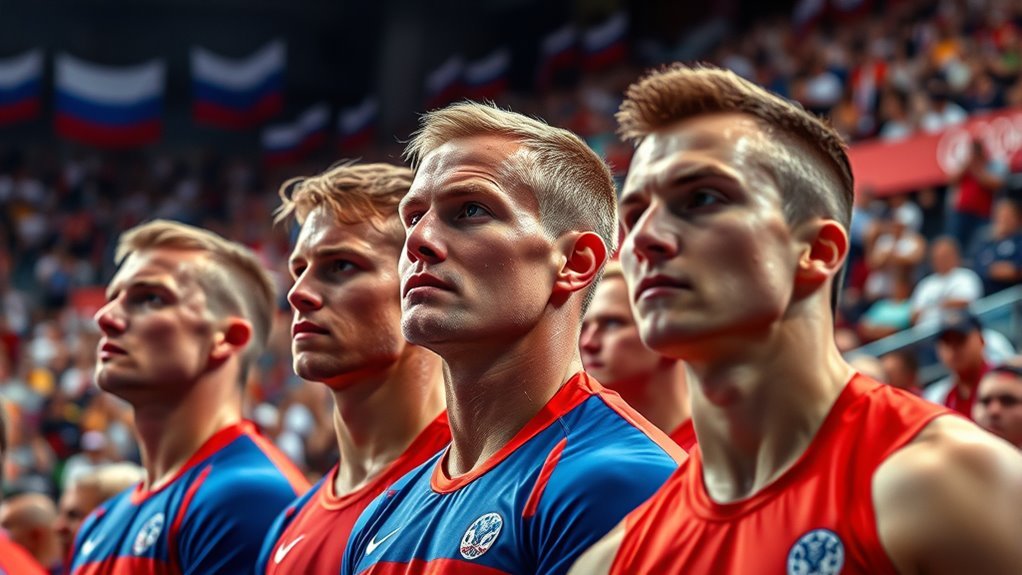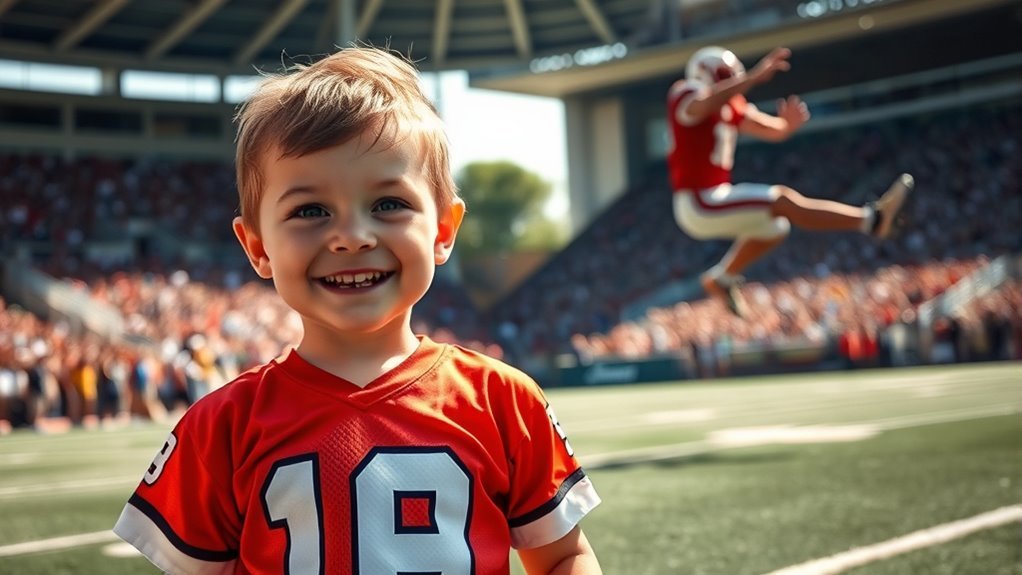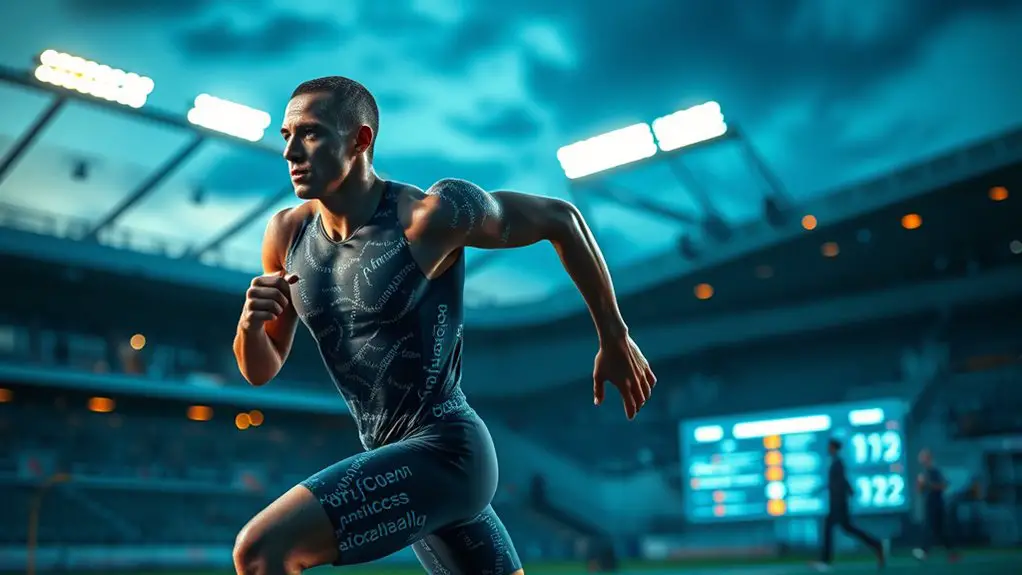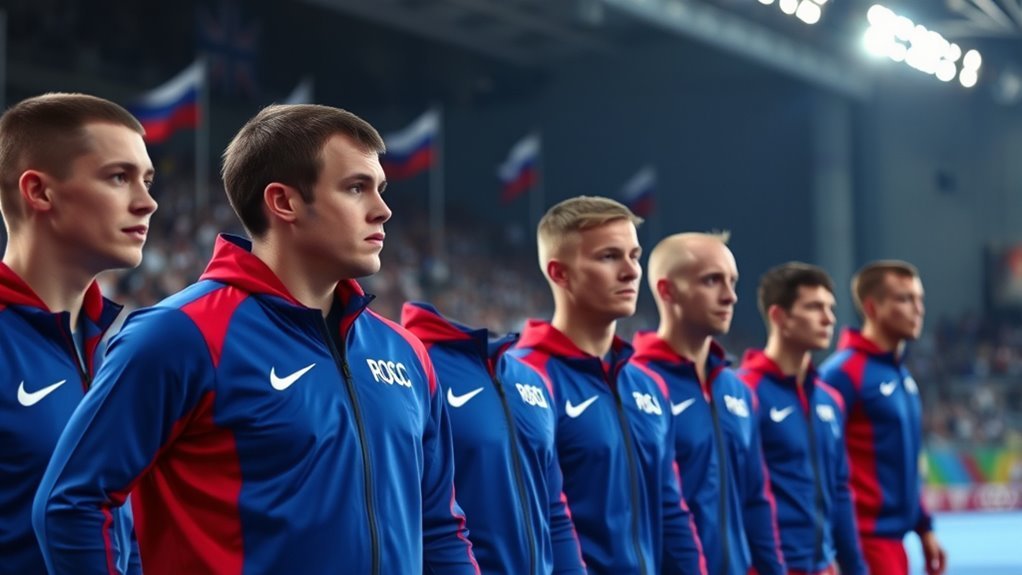Russian athletes are allowed to compete, often as neutral competitors, due to ongoing debates about fairness and accountability in international sports. While historical doping scandals have tarnished their reputation, international governing bodies aim to strike a balance between punishing nations and ensuring individual athletes can still showcase their talents. This situation raises complex ethical questions about competition integrity and responsibility. If you’re curious about the implications for global athletics, there’s much more to explore.
Historical Context of Doping in Russia
Although doping has been a concern in sports globally, the historical context of doping in Russia reveals a particularly complex and troubling narrative. You can’t ignore the Soviet doping programs that thrived during the Cold War, where state-sponsored doping became a tool for national pride. Olympic scandals erupted as athletes were caught in a web of government manipulation, sacrificing their freedom for glory. The historical consequences of these actions are profound, leaving a lasting stain on the integrity of sports. As you think about Russian athletes today, consider how this legacy of deceit shapes their experiences and the ongoing struggle for authenticity in competition. The desire for freedom in sports is a powerful motivator, but the past looms large.
The Role of International Sports Governing Bodies
As international sports governing bodies endeavor to maintain fairness and integrity, their role in regulating doping practices has become increasingly critical. These organizations create governing policies to guarantee athlete eligibility and promote a level playing field. When it comes to Russian athletes, these bodies face tough decisions that affect not only the athletes but also the essence of competitive sports.
| Governing Body | Key Policies | Impact on Athlete Eligibility |
|---|---|---|
| World Anti-Doping Agency | Global Anti-Doping Code | Sets universal standards |
| International Olympic Committee | Athlete Eligibility Rules | Determines participation criteria |
| FIFA | Anti-Doping Regulations | Enforces testing protocols |
| IAAF | Athlete Biological Passport | Monitors individual doping history |
Individual vs. National Accountability
When discussing accountability in sports, it’s vital to differentiate between individual and national responsibility, especially in the context of doping scandals involving Russian athletes. You might argue that athletes should be held accountable for their actions, embracing individual responsibility to guarantee fair competition. However, when national pride is tied to these athletes, it complicates the issue. Many fans view their success as a reflection of their country’s achievements, blurring the lines between personal actions and national reputation. While athletes face penalties for wrongdoing, the overarching system that supports them often escapes scrutiny. Ultimately, it’s important to find a balance where individual accountability is prioritized without undermining the athletes’ struggles against a backdrop of national expectations and pride.
The Impact of Sanctions on Russian Athletes
The discussion around individual accountability naturally leads to the broader implications of sanctions imposed on Russian athletes. These sanctions impact not just the athletes but their rights to compete under fair conditions. While the rationale behind sanctions aims to hold nations accountable, it often punishes individuals who’ve dedicated their lives to sport. You might wonder how it feels for athletes aspiring for excellence, only to face barriers that stem from political conflicts. The desire for freedom in competition clashes with these imposed restrictions, raising questions about the fairness of punishing athletes for actions beyond their control. Ultimately, it’s essential to advocate for athlete rights, ensuring they can compete without the heavy burden of geopolitical tensions overshadowing their dreams.
The Concept of Neutral Athletes
While many athletes find themselves caught in the crossfire of political disputes, the concept of neutral athletes has emerged as a potential solution to allow them to compete without national affiliation. Neutral athlete policies aim to guarantee competition fairness, providing a platform for talented individuals sidelined by geopolitical tensions.
| Pros of Neutral Athletes | Cons of Neutral Athletes |
|---|---|
| Promotes inclusivity | May lack national support |
| Guarantees competition fairness | Risks dilution of national pride |
| Allows for talent showcase | Possible perception of unfairness |
| Reduces political tension | Might complicate event logistics |
| Focuses on individual achievement | Challenges in defining neutrality |
In this way, we can embrace the spirit of sport, allowing athletes to shine regardless of their backgrounds.
Legal Challenges and Appeals
Traversing the landscape of legal challenges and appeals can be intimidating for athletes labeled as neutral. You might find yourself maneuvering complex rules and regulations while searching for legal loopholes that could grant you the freedom to compete. The appeal processes can feel overwhelming, but understanding them can empower you. Here are a few key aspects:
- Understanding the Regulations: Familiarize yourself with the specific rules governing your sport.
- Documentation: Make certain you have all necessary evidence to support your case.
- Seeking Legal Counsel: Engage with professionals who specialize in sports law to guide you.
Ultimately, knowledge and preparation can help you fight for your rights, making sure your voice isn’t lost in the bureaucratic maze of competition.
Public Perception and Media Coverage
Maneuvering legal challenges can shape how Russian athletes are viewed in the public eye. The media plays a significant role in crafting narratives that influence public opinion. Depending on how stories are framed, you might see these athletes as victims of circumstance or as symbols of a broader issue in sports. When the media emphasizes their struggles against bans, it can evoke sympathy, but it can also stoke resentment when focusing on past doping scandals. It’s a delicate balance; perceptions can shift rapidly based on the headlines you encounter. By staying informed and critically analyzing these media narratives, you can better understand the complexities surrounding Russian athletes and form your own opinions, free from sensationalism.
The Future of Russian Participation in Sports
As the landscape of international sports continues to evolve, the future of Russian athletes remains uncertain, especially in light of ongoing geopolitical tensions and doping controversies. For these athletes, maneuvering this turbulent environment requires resilience and adaptability. You might consider how future reforms and athlete development initiatives could shape their paths forward:
- Increased Transparency: Implementing clearer regulations can help build trust in the system.
- Enhanced Support Systems: Fostering environments that prioritize mental and physical well-being could boost performance.
- Collaborative Efforts: Partnering with international organizations may open doors for Russian athletes.
Ultimately, the future hinges on balancing national pride with the global commitment to fair competition. By focusing on these areas, the potential for a more inclusive sporting environment remains alive.
The Broader Implications for Global Athletics
While the participation of Russian athletes in global sports events raises complex issues, it also highlights the interconnectedness of the international athletic community. You can’t ignore how this situation impacts athlete rights and global fairness. Allowing Russian athletes to compete underscores the need for a balanced approach, ensuring that integrity in sports isn’t compromised while also advocating for the rights of individual athletes. This scenario pushes you to question what true fairness looks like in the face of political tensions. It’s essential to foster an environment where athletes can thrive, regardless of their nationality, while addressing the broader implications of competition integrity. Ultimately, this situation invites a necessary dialogue about ethics, equality, and the future of global athletics. Strong support systems play a crucial role in helping athletes navigate the pressures they face in this complicated landscape.
Frequently Asked Questions
How Do Russian Athletes Qualify for International Competitions?
Russian athletes qualify for international competitions by meeting specific qualification criteria set by their respective sports organizations and adhering to international regulations. They must demonstrate their skills, achieve necessary rankings, and pass any doping tests required by governing bodies. While maneuvering through these rules, they endeavor for the freedom to compete on a global stage, showcasing their talents and dedication despite the complex political landscape surrounding them. It’s a journey filled with both challenges and aspirations.
Are There Specific Sports Where Russian Athletes Face More Scrutiny?
Absolutely, some sports like athletics and weightlifting see Russian athletes facing intense scrutiny! You’d think they’re under a magnifying glass, with every detail of their athlete eligibility examined by sports governance bodies. The pressure is immense, as these athletes aim for freedom to compete while maneuvering through the complexities of international regulations. It’s a constant battle, balancing their passion for sport against the stringent oversight aimed at maintaining fairness in competition.
What Support Do Russian Athletes Receive During Competition?
Russian athletes receive substantial support during competition, including access to state-of-the-art training facilities and athlete funding. These resources help you hone your skills and maintain peak performance. While you may face challenges, the backing from your country’s sports programs guarantees you have the tools needed to compete effectively. This support can be a double-edged sword, as it intertwines with broader political issues, but ultimately, it aims to empower you as an athlete.
How Are Doping Violations Monitored in International Events?
Doping violations in international events are monitored through strict doping control and testing protocols. You’ll find that athletes are subject to random testing during competitions and training. Samples are collected and analyzed for banned substances, ensuring fairness and integrity in sports. Additionally, organizations often collaborate with anti-doping agencies to enhance monitoring efforts. This rigorous approach helps maintain a level playing field, allowing athletes to compete freely without the influence of performance-enhancing drugs.
What Are the Consequences for Athletes Found Guilty of Doping?
If you’re caught doping, you might as well be wearing a neon sign that says “I messed up!” Doping penalties can range from suspensions to lifetime bans, depending on the severity. You’ll likely face public scrutiny and damage to your reputation. However, there’s hope in athlete rehabilitation programs that can help you learn from your mistakes and get back to competing. Remember, redemption is possible if you’re willing to put in the work!




